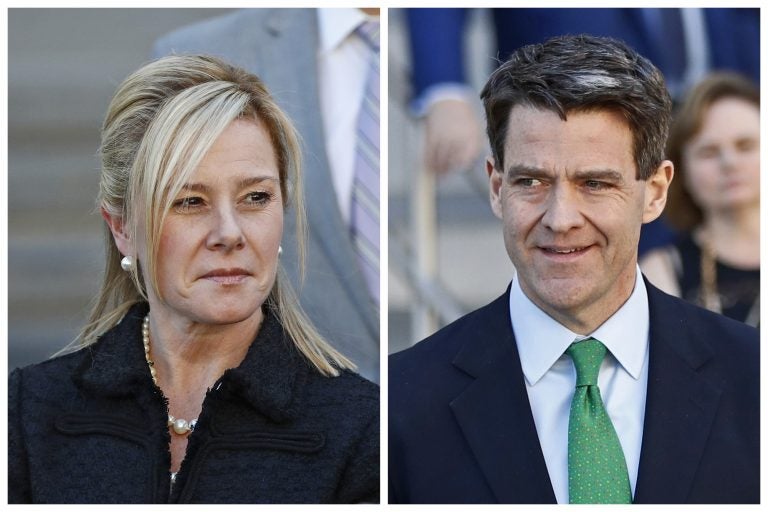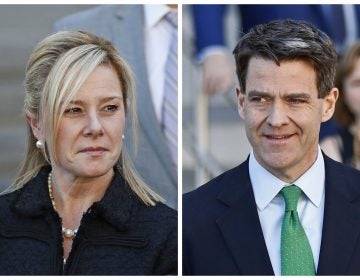High court skeptical of New Jersey ‘Bridgegate’ convictions
The justices suggested during arguments that the government had overreached in prosecuting Bridget Kelly and Bill Baroni.

Bridget Kelly, left, and Bill Baroni leaving federal court after sentencing in Newark, N.J. (Julio Cortez/AP Photo)
The Supreme Court seemed broadly skeptical Tuesday of the convictions of two people involved in New Jersey’s “Bridgegate” scandal where officials created a massive traffic jam to punish a mayor who refused to endorse then-governor Chris Christie’s reelection.
The justices suggested during arguments that the government had overreached in prosecuting Bridget Kelly and Bill Baroni. Both were convicted of fraud and conspiracy for artificially creating gridlock in Fort Lee in 2013 after its mayor, a Democrat, declined to endorse the Republican governor.
Justice Samuel Alito, the only justice from New Jersey, was among those who suggested he was troubled by the government’s argument.
Prosecutors said Kelly and Baroni schemed to make an abrupt change to the flow of traffic over the George Washington Bridge from New Jersey into New York City in a way that backed up local traffic. The result was four days of traffic jams. A fictitious traffic study was used as cover for the change, but prosecutors said the real motive was political payback. At one point, Kelly, a Christie aide, wrote in an email: “Time for some traffic problems in Fort Lee.”
Christie denied knowing about the plan ahead of time or as it was unfolding. Trial testimony contradicted his account, but the scandal helped derail his 2016 presidential bid. Christie, Kelly and Baroni were all in the courtroom Tuesday.
WHYY is your source for fact-based, in-depth journalism and information. As a nonprofit organization, we rely on financial support from readers like you. Please give today.



